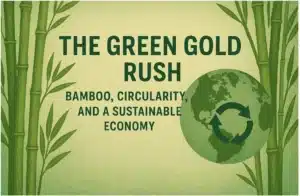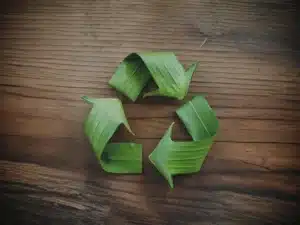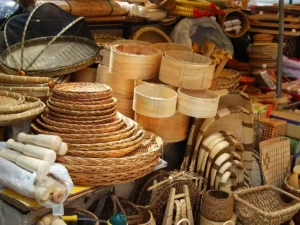
In an era defined by pressing environmental challenges and the urgent need for smarter resource management, the concept of a circular economy isn’t just a buzzword – it’s a vital blueprint for our future. The Green Gold Rush Bamboo .
The Green Gold Rush Bamboo , This model moves beyond the traditional “take-make-dispose” approach, instead focusing on keeping resources in use, extracting maximum value from them, and then regenerating materials at the end of their service life.
But what if one remarkable material could be a linchpin in this global shift, simultaneously addressing waste, fostering economic prosperity, and even helping to mitigate climate change?
Meet bamboo – often lauded as “green gold” for its incredible potential.
Bamboo’s Role in a Circular World and Waste Management

Bamboo’s inherent qualities make it an undisputed champion for circularity. Its astonishing growth rate, maturing in as little as 3-5 years compared to decades for conventional timber, establishes it as one of the fastest regenerating resources on Earth. This rapid renewability significantly reduces pressure on virgin forests and precious land, positioning bamboo as a superior alternative to resource-intensive materials in everything from construction and textiles to packaging.
A core tenet of the circular economy is designing out waste, and bamboo excels here. Being a natural, organic material, it is inherently biodegradable, allowing products made from it to return safely to the earth at the end of their life cycle without contributing to long-term landfill burdens.
This crucial characteristic offers a viable and sustainable exit strategy for products, significantly improving our overall waste management capabilities. Furthermore, bamboo’s cultivation itself is remarkably carbon-efficient; its dense growth and rapid absorption rate make it an excellent carbon sink. Sustainability professionals should understand how material choices impact carbon footprint.
Powering Up Economic Sustainability with Bamboo
The transition to bamboo-based products isn’t solely about ecological gains; it’s a powerful engine for economic sustainability. The entire bamboo value chain – from cultivation and harvesting to processing and manufacturing – generates a wealth of opportunities, particularly benefiting rural communities where bamboo often flourishes.
Consider the widespread economic impacts:
- Job Creation: The burgeoning bamboo industry fuels diverse employment opportunities, from farmers tending bamboo groves to skilled artisans crafting intricate products, and engineers developing innovative bamboo-derived materials.
- Emerging Industries: Bamboo’s remarkable versatility sparks the creation of entirely new product lines and markets. We’re seeing it replace less sustainable options in construction, textiles, pulp and paper, bio-plastics, and even serve as a biomass energy source.
- Cost-Efficiency and Competitiveness: In many applications, bamboo offers a cost-effective raw material due to its rapid growth cycle and often lower processing requirements compared to traditional alternatives, offering businesses a competitive edge.
- Local Economic Empowerment: Investing in local bamboo farms and processing facilities helps to build robust, self-reliant economies, reducing dependence on volatile global supply chains and fostering community resilience.
This “green gold rush” signifies a tangible pathway to creating sustainable livelihoods and fostering prosperous regions, offering insights into the broader landscape of sustainable economic viability and enduring prosperity.
Embracing the Bamboo-Driven Future
The potential of bamboo to underpin a truly circular and economically vibrant future is immense. By consciously choosing bamboo products, supporting businesses committed to its sustainable use, and advocating for policies that champion bamboo cultivation and innovation, we can collectively drive transformative change.
We have the opportunity to revolutionize our approach to waste, cultivate resilient local economies, and build a future where resources are cherished, continually cycled, and where ecological health and economic prosperity are inextricably linked.
It’s time to recognize bamboo not just as a plant, but as a cornerstone of a sustainable future – a future we can all actively help to build.









